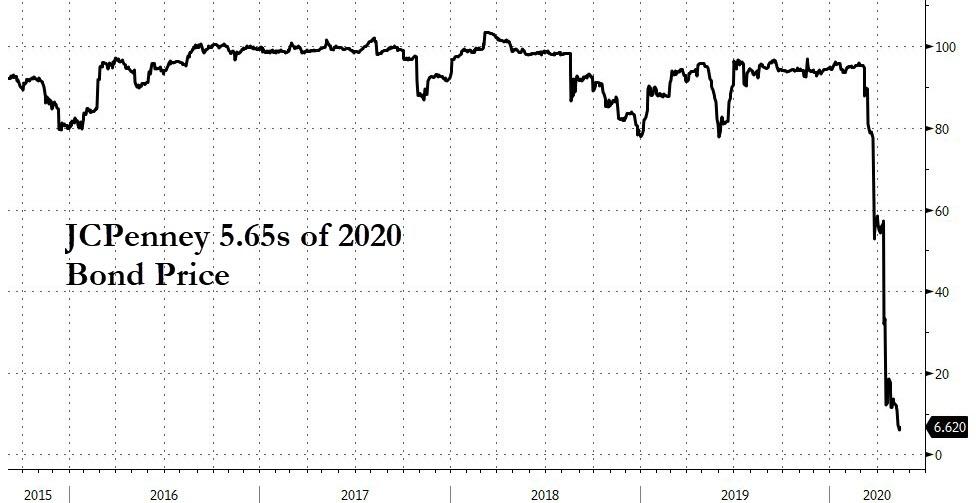JC Penney Shares Halted As Bankruptcy Filing Looms
Tyler Durden
Fri, 05/15/2020 – 09:44
JC Penney shares have been halted Friday morning just minutes after the open as the company is widely expected to file for Chapter 11 bankruptcy protection.
We have been closely following the trials and tribulations of JCP, Neiman Marcus and other retailers who have filed for bankruptcy or are expected to soon file, as the coronavirus outbreak delivers the final blow toppling over the house of cards of junk corporate debt that has weighted down these businesses.
In anticipation of the filing, the New York Times published a story last night (appearing in Friday’s paper) highlighting one of our favorite themes: the role of Private Equity in bringing these retail giants to their knees by loading them down with debt and siphoning off money that could have been reinvested. JC Penney and its peers have been widely criticzed for failing to invest in their online platform, and developing more coordinated sales strategies allowing consumers to blend e-commerce with brick-and-mortar.
Some of JC Penney’s most liquid bonds were trading at roughly 6 cents on the dollar Friday morning.
As the NYT reminds us, JC Penney continues to struggle with roughly $1.7 billion in debt from a leveraged buyout – that is, debt that contributed nothing but moving the company from the grasp of one group of ineffective managers to another.
“Much of the difficulty that the retail sector is experiencing has been aggravated by private equity involvement,” said Elisabeth de Fontenay, a professor at the Duke University School of Law who specializes in corporate finance. “To keep up with everybody’s switch to online purchasing, there really needed to be some big capital investments and changes made, and because these companies were so debt strapped when acquired by private equity firms, they didn’t have capital to make these big shifts.”
However, as we reported a week ago, JCP has already struck a deal for another $500 million in financing to get it through bankruptcy. While that loan might be necessary to save the business and prevent a liquidation, we would ordinarily caution against using debt to solve a debt problem.
